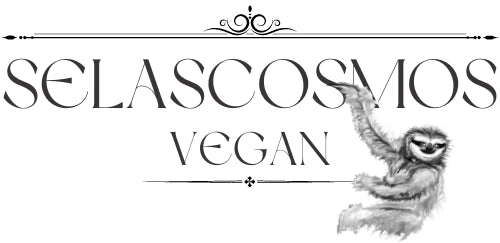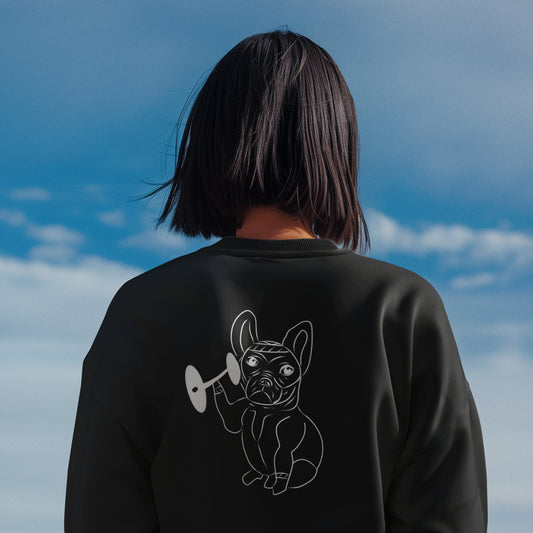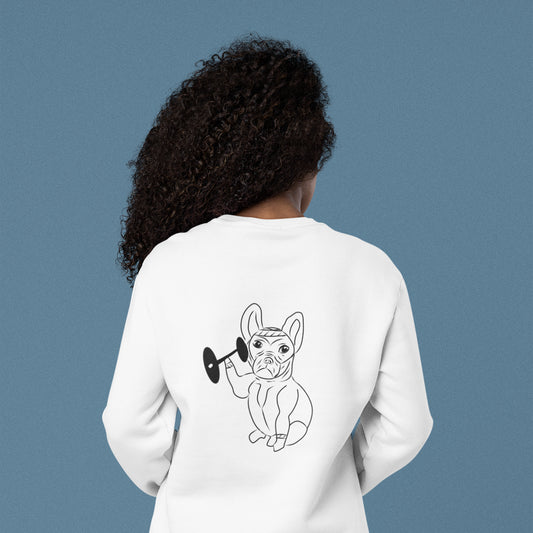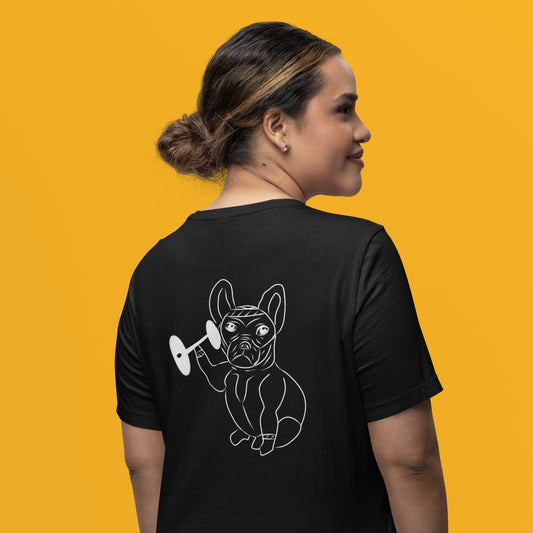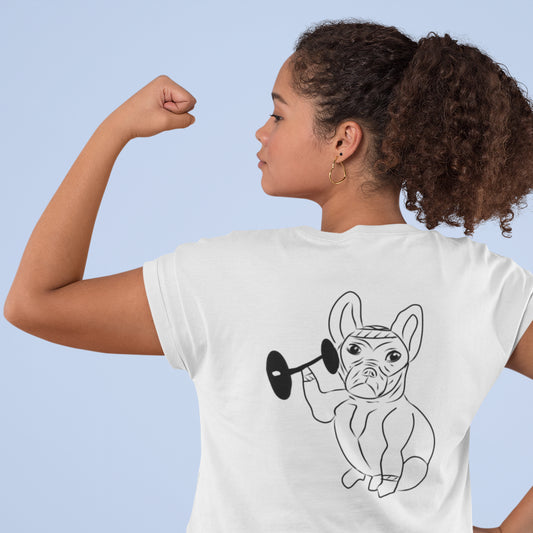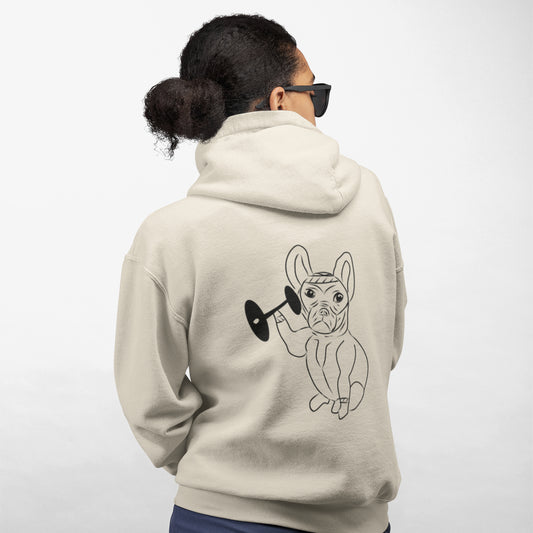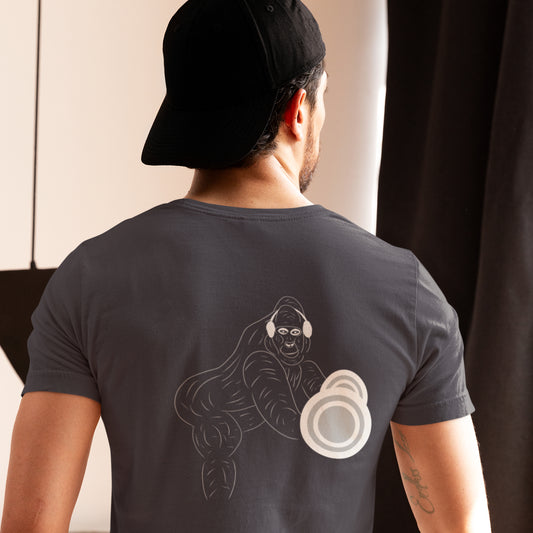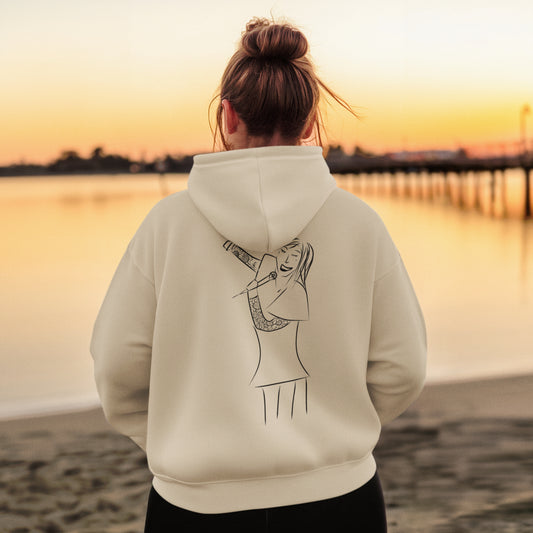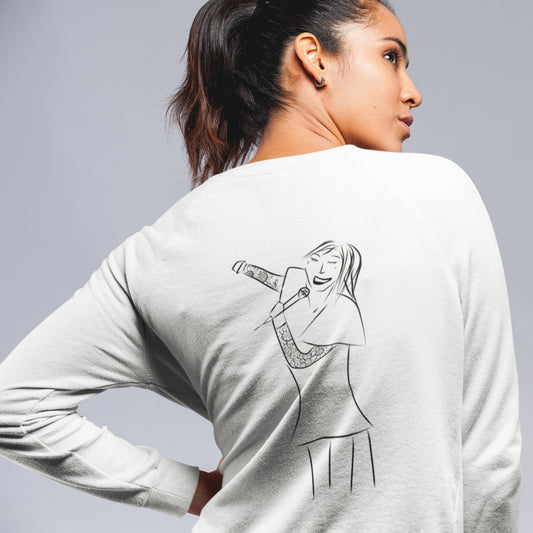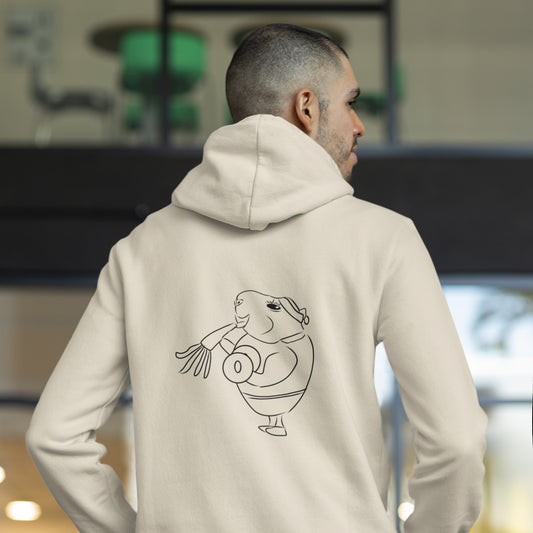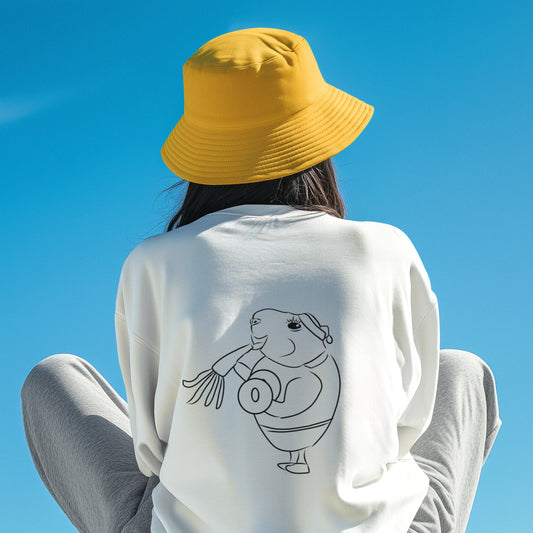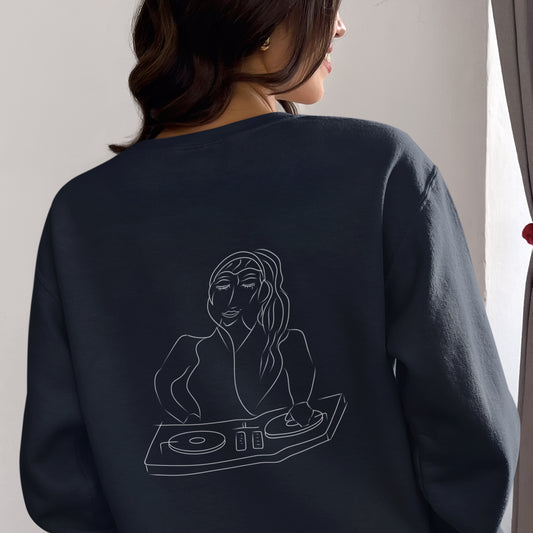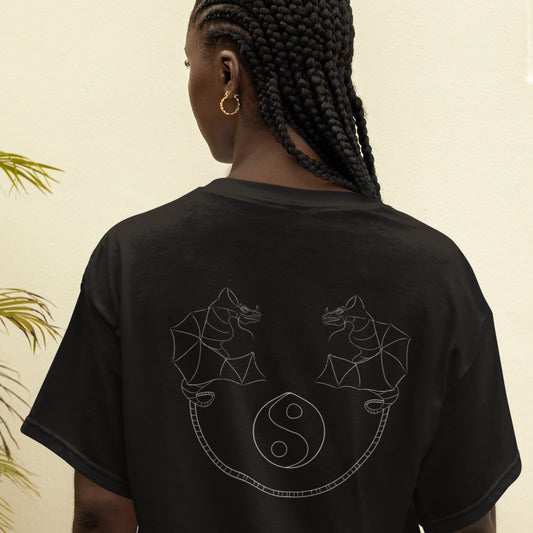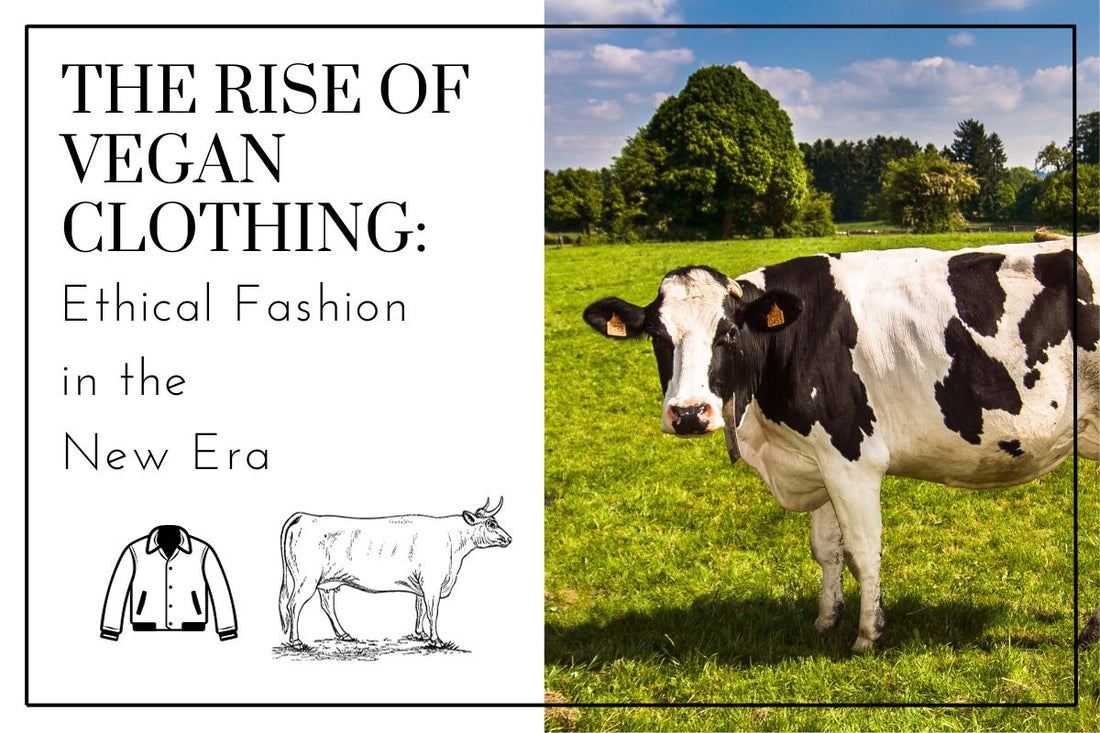
The Rise of Ethical Vegan Clothing: Ethical Fashion in the New Era
Share
In the era of conscious consumerism, ethical vegan clothing is gaining immense popularity as a choice for ethical and sustainable fashion. The surge in demand for cruelty-free and environmentally friendly products sees consumers turning to vegan friendly clothing to align fashion choices with personal values. Our collection of organic cotton t-shirts, Hoodies and Jumpers offers comfort and sustainability, but enough about us.
Vegan clothing excludes animal-derived materials like leather, fur, wool, or silk, opting for eco-friendly alternatives like organic cotton and recycled fabrics. It also excludes animal derived products from the production processes such as dying. This not only curtails animal exploitation but also minimises environmental impact when the alternative materials are responsibly sourced.
With the power of social media and influencers championing vegan lifestyles, awareness and acceptance of vegan clothing soar. Brands are recognising the potential in the vegan fashion market and some are stepping up to meet the growing demand, making every aspect of our wardrobe animal-friendly and climate-conscious.
The rise of vegan clothing signals a shift in consumer behaviour, reflecting a desire for fashion that's not just stylish but ethically produced. As people become more aware of their clothing's impact on the planet, vegan fashion potentially emerges as an integral part of the industry in this new era led by a growing movement towards compassionate fashion.

Image of leather jackets by Robbie Noble
The ethical implications of traditional fashion industry
Vegan clothing is a term used to describe garments that are free from any animal-derived materials or byproducts. This means that no leather, fur, wool, silk, or any other animal-derived material is used in the production of these clothes. Instead, alternative materials like organic cotton, hemp, bamboo (not always a great option due to the chemicals involved in processing it), and recycled fabrics are used to create stylish and sustainable clothing options. This includes the dying processes which are often overlooked when thinking about vegan clothing.
Vegan clothing is not only about animal welfare; it can also have positive environmental implications. The traditional fashion industry is known for its negative impact on the environment, from the excessive use of water and chemicals in textile production to the pollution caused by the disposal of garments. By choosing vegan clothing, consumers can reduce their carbon footprint and contribute to a more sustainable fashion industry, but only if the base products are responsibly sourced. There is less environmental benefit in using virgin plastics to create fake leather. For a truly eco-conscious wardrobe, it's important to consider both materials and manufacturing.

Image of cotton fields by Amber Martin
Benefits of vegan clothing
The traditional fashion industry has long been associated with ethical concerns. The use of animal-derived materials like leather and fur involves the exploitation and suffering of animals. Animals raised for fur are often kept in cramped conditions and subjected to inhumane treatment. Similarly, the production of leather involves the use of toxic chemicals that not only harm the workers but also contaminate waterways and contribute to deforestation.
In addition to animal welfare, the traditional fashion industry also faces ethical challenges in terms of labour practices. Many garments are produced in low-wage countries where workers are subjected to long hours, unsafe working conditions, and low pay. This lack of transparency in the supply chain makes it difficult for consumers to know if the clothes they are buying were made under fair and ethical conditions. It's important to check that your clothing comes from certified manufacturers that guarantee ethical labour all along the supply chain and meet recognised sustainable fashion certifications.
Sustainable materials used in vegan clothing
Vegan clothing offers numerous benefits, both for individuals and the planet. Firstly, it promotes animal welfare by eliminating the use of animal-derived materials. By choosing vegan clothing, consumers can contribute to the reduction of animal exploitation in the fashion industry. Secondly, vegan clothing is more sustainable and environmentally friendly. The production of animal-derived materials like leather and fur requires a significant amount of resources, including water, land, and energy. By using alternative materials like organic cotton and recycled fabrics, the environmental impact of clothing production can be significantly reduced.
Moreover, organic vegan clothing is often free from toxic chemicals that are commonly used in the production of traditional clothing. These chemicals not only harm the environment but can also have negative health effects on workers. By opting for vegan organic clothing, it can reduce workers exposure to these harmful substances and contribute to cleaner production and non-toxic fashion.

Image by Yoel Winkler of pineapples
Vegan clothing brands and designers
Vegan clothing relies on a variety of sustainable ethical materials that are both eco-friendly and cruelty-free. Organic cotton is one of the most popular materials used in vegan clothing. It is grown without the use of synthetic pesticides and fertilisers, which reduces the environmental impact of cotton production. Hemp is another sustainable material that is commonly used in vegan clothing. It requires less water and land compared to other crops and is known for its durability. Recycled fabrics, such as polyester made from recycled plastic bottles, are also widely used in vegan clothing as they help reduce the 92 million tonnes of textile waste and conserve resources but still can create microplastic pollution when garments are washed. Its better then the clothing dumped in the Atacama Desert or in Ghana. At least in Ghana they try to reuse some of it .
In addition to these materials, innovative alternatives like Pinatex (made from pineapple leaf fibers), MuSkin (made from mushroom caps), and cork fabric are gaining popularity in the vegan fashion industry. These materials offer similar properties to animal-derived materials but without the ethical and environmental concerns, if grown organically. Some of these are considered plant-based textiles and are becoming key players in next-generation vegan fashion , pushing the trend toward regenerative fashion or circular fashion systems.
Tips for shopping for vegan clothing
As the demand for vegan clothing continues to grow, more and more brands and designers are stepping up to cater to this market. Established fashion houses and independent designers alike are embracing veganism and incorporating cruelty-free materials into their collections. Stella McCartney, a renowned designer and lifelong vegetarian, has been at the forefront of the vegan fashion movement. Her brand is known for its commitment to sustainable and cruelty-free fashion, using alternative materials like vegetarian leather and recycled nylon.
Other brands like us at Selas Cosmos are also gaining popularity for their stylish and vegan-friendly offerings. These brands are not only committed to animal welfare but also prioritise sustainability and ethical practices throughout their supply chains. Additionally, many mainstream brands are introducing vegan lines or incorporating vegan options into their collections, making it easier for consumers to find animal-friendly fashion. Please check for certification when using these mainstream brands, especially the dying and printing processes. Look for those engaging in transparent supply chains and certified cruelty-free fashion.

Image Alyssa Strohmann of clothes on a rack
How to incorporate vegan clothing into your wardrobe
Shopping for vegan clothing can sometimes be challenging, as not all brands clearly label their products as vegan. However, there are a few tips that can help you navigate the world of ethical fashion:
- Look for certifications: Some brands may carry certifications like PETA's "Vegan Approved" logo or the Certified Vegan logo, which indicate that the products are free from animal-derived materials.
- Read labels and materials: Check the product labels and materials to ensure that no animal-derived materials are used. Look for fabrics like organic cotton, hemp or recycled materials.
- Research brands: Do some research on brands that prioritise sustainability and animal welfare. Look for brands that are transparent about their production processes and supply chains.
- Support local and independent designers: Local and independent designers often have a greater focus on ethical and sustainable practices. Explore local markets, boutiques, and online platforms to discover unique and vegan-friendly fashion options.
- Buy secondhand: Opting for secondhand clothing is a sustainable and affordable way to incorporate vegan fashion into your wardrobe. Thrift stores, charity shops, online marketplaces, and clothing swaps are great places to find pre-loved vegan clothing and support low impact living. It also helps reduce demand for fast fashion and contributes to the circular fashion economy. Its better than it ending up in landfill or being sent abroad for disposal.
The future of vegan clothing: Trends and innovations
Incorporating vegan clothing into your wardrobe is easier than ever, thanks to the wide variety of options available. Start by assessing your current wardrobe and identifying items made from animal-derived materials. Replace these items with vegan alternatives as they wear out or donate them to someone who can use them. Focus on building a capsule wardrobe with versatile and timeless pieces that can be mixed and matched. This will help reduce the need for excessive consumption and ensure that your wardrobe is both sustainable and vegan-friendly.
Experiment with different styles and silhouettes to discover your personal vegan fashion aesthetic. Mix and match different textures and colours to create unique and fashionable outfits. Remember that vegan clothing can be just as stylish and on-trend as traditional fashion, so embrace your individuality and have fun with your fashion choices. We have a few guides like this in our blog.
Conclusion: Embracing ethical fashion with vegan clothing
The future of vegan clothing looks promising, with continued growth and innovation in the industry. As sustainability becomes a key focus for consumers, more brands are likely to adopt vegan and eco-friendly practices. We can expect to see advancements in alternative materials, with new innovations and technologies creating even more sustainable and cruelty-free options.
In terms of trends, we can expect to see a rise in minimalist and timeless designs that prioritise quality and longevity over fast fashion trends. Slow fashion, which promotes ethical and sustainable practices, is gaining momentum, and vegan clothing aligns perfectly with this movement. Additionally, the rise of digital platforms and e-commerce has made it easier for consumers to discover and support vegan clothing brands, further driving the growth of this market.We may also see growing popularity in zero waste fashion and the development of vegan fashion innovation hubs that focus on scalability and long-term environmental solutions. Have questions? Feel free to contact us for more details.
Thanks for reading.
